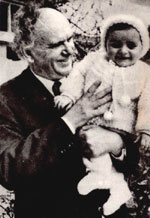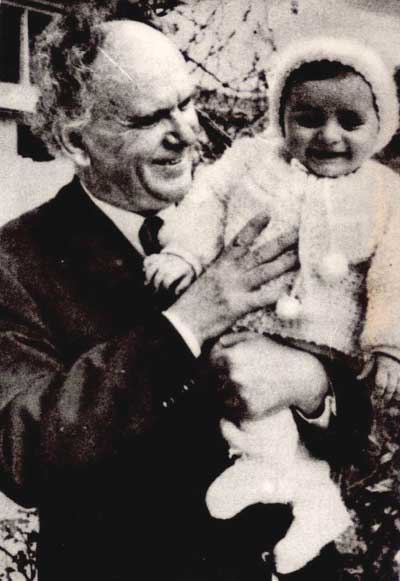Sterjo SPASSE

Sterjo Spasse (1914-1989) is a novelist and short story writer of (Slav) Macedonian origin from Lake Prespa. It was while teaching in the little village of Derviçan south of Gjirokastra that the eighteen-year-old Spasse began writing his first novel, and his masterpiece, Nga jeta në jetë - Pse!?, Korça 1935 (From life to life - Why!?), usually referred to for short as Pse!? (Why!?). Like Haki Stërmilli’s Sikur t’isha djalë (If I were a boy), Pse!? is written in the form of a diary and focusses on the tragic dilemma of a young intellectual in a backward rural society. Gjon Zaveri is an intelligent young man who, after his studies, returns to his native village. His parents, intent on adhering to custom and upholding tradition, insist that he marry the girl they have chosen for him, the village maiden Afërdita. Gjon knows that such a marriage would be a disastrous mistake, but after much soul-searching and anguish, he reluctantly concedes to the alliance, thus submitting to tradition and patriarchal society, and bringing about his own downfall. Pse!? is a nihilistic work, a roman i mohimit (novel of denial). Its pessimistic hero Gjon Zaveri suffers from all the Weltschmerz of Goethe’s young Werther, a hero with whom he feels great affinity. In the end, resigned to his fate, Gjon commits suicide by throwing himself into the lake. Two weeks later, a letter of farewell is found, with which the novel concludes.
Post-war Marxist critics were unable to deal with Pse, though it may be considered one of the great Albanian novels of the early twentieth century. The Schopenhauerian pessimism and the Weltschmerz conflicted too sharply with the positive hero demanded by socialist realism and they dismissed the work simply as the product of the suffering and oppression of the working masses in pre-liberation, feudal-bourgeois society. It was referred to publicly only in order to show what progress Spasse had made with his subsequent novels of socialist realism. From a purely aesthetic point of view, exactly the opposite is true. Although Pse?! is the work of youthful inspiration by a writer as yet unskilled in his métier, this first novel contrasts favourably with all of the later ‘classics of socialist realism’ that he produced.
|
BACK


![]()
